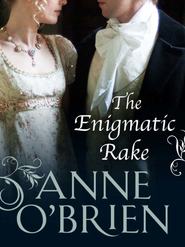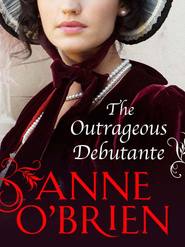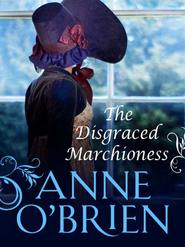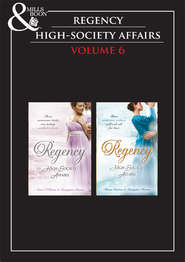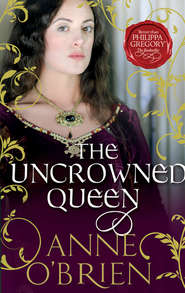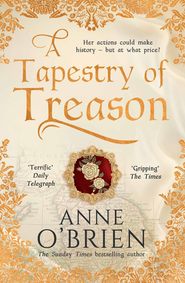По всем вопросам обращайтесь на: info@litportal.ru
(©) 2003-2024.
✖
The Shadow Queen: The Sunday Times bestselling book – a must read for Summer 2018
Настройки чтения
Размер шрифта
Высота строк
Поля
Applying my heel to my mare, I left him to his uneasy deliberations.
The hiatus between myself and Thomas came to a hasty end as the court began to hum with a bustle of preparation. Thomas’s hopes were about to be fulfilled, for Edward was collecting an army and preparing to take it into Brittany. Sir Thomas Holland acquired a spring in his step that had nothing to do with me.
‘So you are going to Brittany.’
‘As soon as I can. Don’t expect letters. I am no writer.’
‘How will I know if you are well?’ Then added: ‘If you are alive?’
‘You won’t. Until I return as victor or on a bier.’
He snatched a kiss, as brief as the one on our wedding day. I sighed. I would find no use for ointment of lily, so well recommended by those who knew, to repair painful fissures of lips, product of too many heated kisses. My lips were destined to suffer only from the cold winds of winter.
Thomas did not return with a victor’s wreath or on a bier. He did not return at all but, with the truce, went on to Bayonne with Sir John Hardeshull. Followed by Granada with the Earl of Derby where there was a crusade against the Moors. It was to be more than a year before I saw him again, by which time all my hopes had been dashed.
January 1344: Windsor Castle
The final tournament of the day was well underway, the quintessential skills of a knight on show for us all, à plaisir rather than à outrance with King Edward’s knights making a fine showing in the lists.
The war was in abeyance. Edward was home, summoning all the armed youth of England to Windsor, as well as as many earls, knights and barons as he could lay his hands on. This was the second of his great winter tournaments. Queen Philippa was present with a clutch of royal children.
Thomas was home too. He was not dead. Neither was he rich. His expression was bleak.
‘I have not made my fortune,’ he announced in passing.
And that was that.
Now we watched, admired. We watched as Edward dislodged his opponents with extravagant ease. We watched as Thomas, white silk a-glimmer in the frosty light, fighting with bold strokes irrespective of his impediment, won the prize. We watched as the Earl of Salisbury, Will’s famous father returned to us, full of good humour and authority as Earl Marshall, rode at his opponent. The thunder of hooves, the cries of the supporters, the groans of those who lost their bets on which knight would prevail. We watched and the day was glorious indeed. Then, in a strange little silence, herald of disaster, the attention of the crowd centred on one occurrence.
The Earl of Salisbury was unhorsed.
The Earl lay on the ground while his horse cantered off, to be caught by his page.
The Earl lay pinned like a beetle in its carapace, his face still masked by his tilting helm.
Surely he would rise? Surely he would get to his feet, remount his horse and ride back to receive the commiserations from friends and the women in the royal gallery?
The Earl lay motionless on the ground.
Then his squire, kneeling beside him, struggling to remove his helm, was signalling for help. Signalling with increasing concern.
Edward was the first to be at his side, pushing aside the squire, fast followed by Will who bounded from the ranks of the Montagu retinue where he had been acting as squire. At my side Countess Catherine sat unmoving, chin raised.
‘He will be unharmed. He has been unhorsed before.’
But her hands were tight-clasped in her lap, and I felt the beginning of a little fear that unfurled in my chest as the King looked up, scrubbing his palms down his cheeks.
The Earl did not rise.
Heavily unconscious, he did not speak, not even when he was carried inside. And later in the day, with one of the King’s doctors frowning over him, a litter was harnessed to six of the King’s horses to carry him to the family home at Bisham, the Earl’s new manor that he loved so much, because it seemed to the Countess that it was the right thing to do.
Will and I went with them, a dour cavalcade.
The King watched us go, grief and fear engraved on his face.
We were at his bedside when the Earl died at Bisham Manor on the thirtieth day of January, never regaining his senses. We stood by his bed as his laboured breathing faltered and stopped. The priest made the sign of the cross on his brow. We bent our heads in prayer, the whole household in mourning. How tragic that the Earl, restored to family, home and pre-eminence, his reputation as soldier and royal counsellor still glorious, should be struck down by a cheap death on the jousting field.
‘There will never be another like him. So great a man, so noble a soldier.’ The Countess’s eyes were proudly dry but stark with loss. ‘The King has lost his truest friend. He can never be replaced. The first and greatest of the Montagu Earls of Salisbury.’
I heard Will inhale sharply, then he turned on his heel and walked out. Sensing his resentment of both the death and his mother’s assumption that Will would never be his father’s equal, I stretched out a hand.
‘Let him go,’ the Countess said, demeanour pinched and cold with the waiting. ‘My son is old enough to shoulder his responsibilities. He must step into his father’s shoes, however unlikely it seems.’
Will’s brother and four sisters stood irresolute.
I did not think that I could forgive her. I had seen death approaching, but Will had not expected this. Nor had he expected the immediate reproof from his mother, that he would always live in his father’s shadow. I curtsied to the Countess.
‘I think that he should not be alone, my lady. There is no need to quite step into those magnificent shoes today. Tomorrow will be soon enough.’
And before she could deny it, I went to find him, discovering him where I knew he would be. Will was not one for prayer, seeking out solace in the chapel. Instead he was in the stables, running his hand down the neck of his father’s favourite horse, murmuring some affectionate words I could not hear.
‘Will…’
He hesitated, then resumed the stroking of the massive gleaming neck.
‘I won’t talk about it.’
Instead of arguing the case I went and touched his shoulder. Even when he shrugged me off, I persisted and rubbed the back of his neck gently. When I rested my forehead against his back, at last he turned to me and let me fold him into my arms, the first true embrace born out of affection and compassion in all the years of our marriage. He did not weep, but his body was taut with emotions I could not name. And then he relaxed against me a little as I stroked his hair.
‘I am so very sorry, Will.’
It was not unknown for knights to meet death or serious injury in jousts à plaisir, but that was no comfort to Will who had worshipped the great soldier that his father had been. The shock held him silent.
‘It was a better end than many,’ I tried. Better than execution. Better than the head being severed from the body by an incompetent felon. ‘He had his dignity to the end.’
‘He was a good father.’
‘He was caring and affectionate.’
And then, as if it were an entirely new thought, Will raised his head. ‘I am Earl now.’
‘So you are.’
‘I did not expect it.’
‘Of course you did.’
‘I didn’t mean… But not yet.’






